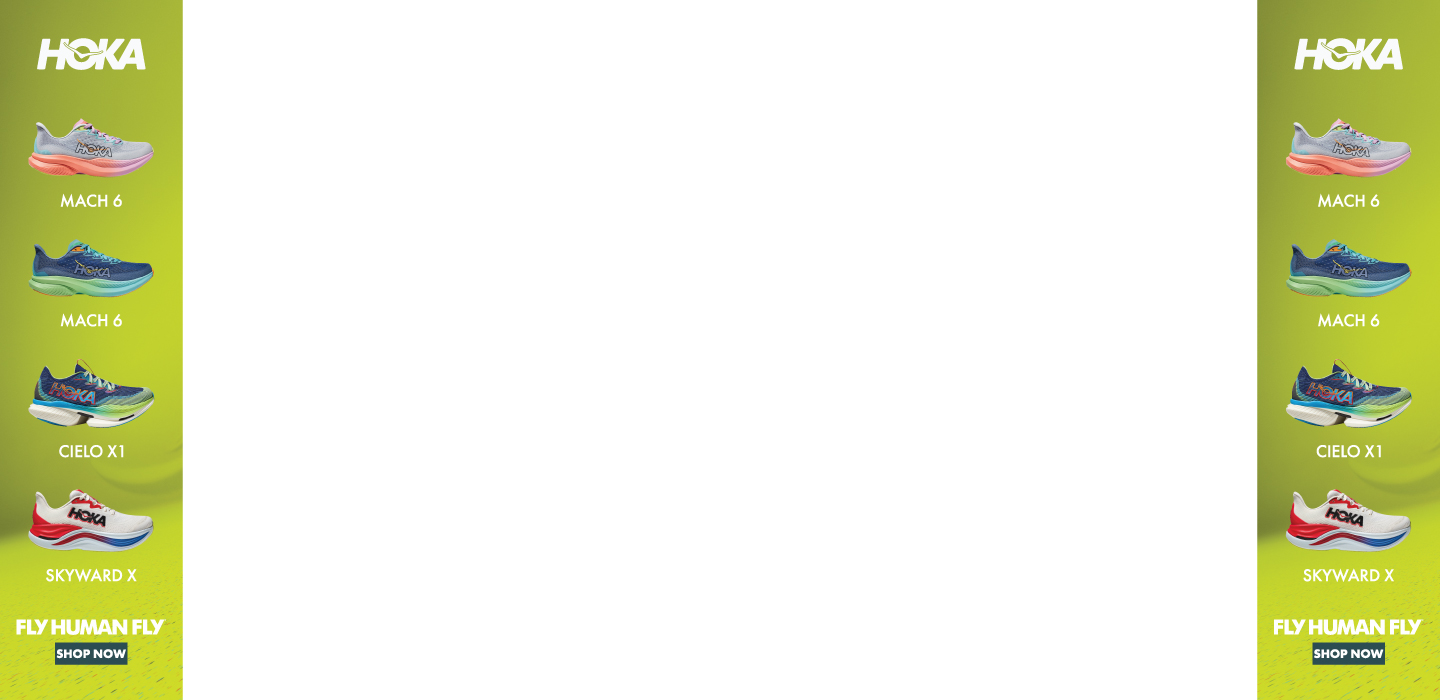A Restorative Pre-race Mobility Workout to Help You Loosen Up
Six moves to work out the kinks—and soothe your nerves.
Those last few days and hours before a big race, like this weekend’s New York City Marathon, can feel a little intimidating and unsettling. Excitement builds, the jitters set in, and without a long run on the schedule, it can feel like there’s nowhere to channel all that nervous energy.
This is when having a pre-race mobility workout in your arsenal is clutch. Focusing on your mobility allows you to keep moving without putting too much stress on your body and nervous system. Done regularly, mobility work can improve your range of motion and prevent injuries, too. Plus, when performed as part of a warmup, mobility exercises can increase blood flow, bring your tissues up to temp, and send a message to the body that it’s time to get to work.
Designed by Yusuf Jeffers, NASM-certified personal trainer and USATF-certified running coach, the following pre-race mobility workout hits all the major muscle groups—but not too hard. “I designed this workout to be more restorative in nature, especially if it’s meant to be performed right before a big race,” Jeffers tells Runner’s World.
If you’re trying to maintain that delicate balance of staying active while conserving energy, this workout is a solid choice. Keep in mind, if you’re performing this before a race, you want to be gentle in your movements, not pushing into pain or discomfort. Also, make sure to breathe deep through each pose to relax the body and mind.
How to use this list: Perform each exercise below for 30 to 60 seconds, focusing on the quality of the movement rather than the number of reps. Perform 1 to 2 sets of each exercise before moving on to the next movement, resting as needed between sets. You will need an exercise mat and a small medicine or mobility ball.
1. Thoracic Spine Extension
Why it works: “This move helps with posture, especially in runners with rounded shoulders and a protracted upper body [or a hunched-over position],” Jeffers says.
How to do it: Lie face up with knees bent and feet on floor. Place a small medicine or mobility ball on floor underneath thoracic spine (align it with chest). Cross arms over chest and, keeping hips on floor, flex spine by moving shoulders toward hips. Then, extend spine by lowering shoulders back toward the floor. Continue alternating between flexion and extension.
2. Downward Dog With Foot Pedal
Why it works: “This movement is great for upper-body stability at the shoulder,” Jeffers says. “It also dynamically stretches the posterior chain muscles, like the hamstrings and calves.”
How to do it: Start in a high plank position with wrists under shoulders, back flat, and core engaged. Send hips up and back to come into downward-facing dog. Bend knees slightly and draw chest toward thighs, letting head drop between arms. Simultaneously bend right knee and push left heel into ground to stretch calf and hamstring muscles, holding for a couple seconds. Then, bend left knee and push right heel into ground. Continue alternating, bending knees in a pedalling motion.
3. Supine Hip Rotation
Why it works: This rotational drill mobilises the hip flexors, which can be chronically tight in some runners.
How to do it: Lie face up with arms at sides, legs extended, and both feet flexed. Bend right knee and lift it above the hip to from a 90-degree angle. From right hip, rotate leg inward as far as possible (knee moves toward midline), then rotate leg outward as far as possible (knee moves away from midline). Continue alternating inward and outward rotation for 30 to 60 seconds. Repeat on left side.
4. Runner’s Lunge With Hip Rotation
Why it works: Jeffers explains that the runner’s lunge with hip rotation “is a mobility drill that can help not only with hip extension but also ankle and knee flexion,” all of which are critical to a runner’s gait.
How to do it: Start in a high plank position with wrists under shoulders, back flat, and core engaged. Bring right foot forward into a deep lunge position and grab the top of right foot with right hand. Rotate torso inward, toward front foot. Then rotate torso outward, away from front foot. Next, bring hips back to extend right knee. Return to lunge position and repeat entire sequence for 30 to 60 seconds. Then repeat on left side.
5. Supine Spinal Rotation
Why it works: Carrying tension in your back? “This supine spinal rotation is good for relieving tightness in the lumbar and sacral spine,” Jeffers says. (That’s the bottom of the spine.)
How to do it: Lie face up with arms out to sides, on floor in a T shape. Keeping legs and feet together, bend knees 90 degrees and lift them so they’re directly above hips. Slowly rotate spine to drop knees to the right, as far as possible. Lift legs back through centre, then drop knees to the left. Continue alternating.
6. Leg Swing
Why it works: “This is a standard running warm-up move that helps mobilise the major muscle groups of the leg,” Jeffers says.
How to do it: Stand with feet shoulder-width apart. Shift weight to left foot and lift right to balance. Keep torso upright as you repeatedly swing right leg forward and backward. Go as high as the quadriceps and hamstrings will comfortably allow for 30 to 60 seconds. Repeat on the left leg.
READ MORE ON: mobility



